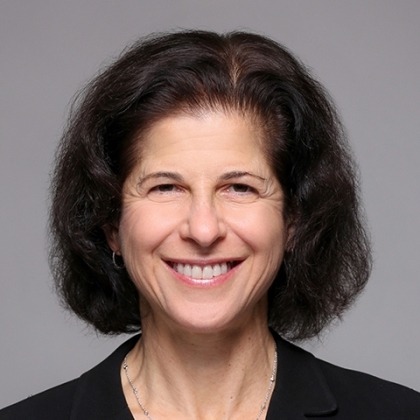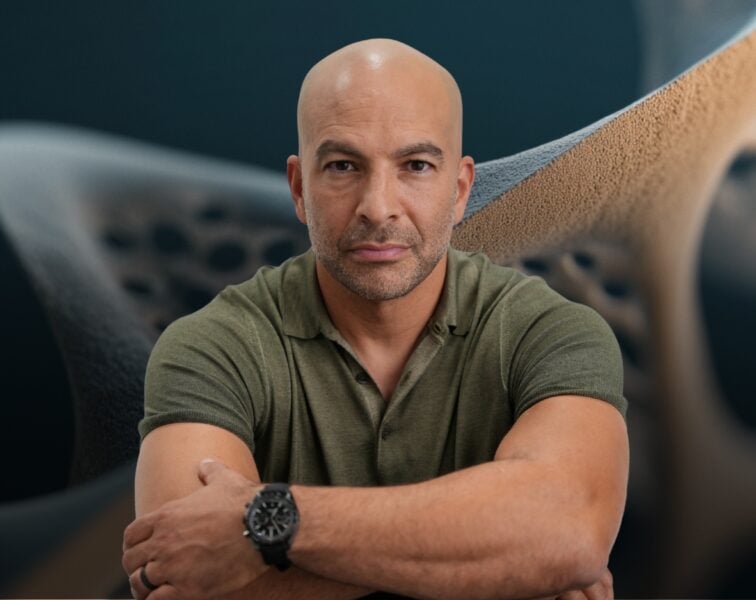Sharon Parish is a Professor of Medicine in Clinical Medicine and Clinical Psychiatry at Weill Cornell Medical College and a prominent sexual medicine specialist who has been practicing for 30 years. In this episode, Sharon tackles the topic of women’s sexual health, including the conditions associated with decreased sexual function and desire and available treatment options. She explores the influence of sexual health on overall well-being while also examining the potential effects of childbirth, birth control, metabolic health, and more on sexual function and desire. Through case studies, Sharon teases apart the differences between desire and arousal, explains the various factors that affect them, and walks through hypothetical treatment plans for the case study patients. In addition, she delves into the subject of menopause, addressing its impact on sexual health as well as the misguided fears around hormone replacement therapy. Stay tuned for next week’s launch of our complementary podcast on men’s sexual health.
Subscribe on: APPLE PODCASTS | RSS | GOOGLE | OVERCAST | STITCHER

We discuss:
- Sharon’s interest in sexual medicine and the current state of the field [3:00];
- How hormones change in women over time and how that impacts sexual function [8:15];
- Changes after childbirth and its impact on sexual function [11:00];
- The role of metabolic health and systemic vascular health in sexual health [20:15];
- Conditions associated with decreased sexual function and the importance of sexual health for overall wellbeing [26:15];
- Sexual dysfunction case study #1: A 41-year-old mother of two, the sexual response cycle, and difference between arousal and desire [38:45];
- Medications that may reduce sexual desire [49:45];
- The effect of birth control pills on sexual desire [56:30];
- The importance of testosterone in women for sexual function and desire, and why the FDA hasn’t approved exogenous testosterone as a therapeutic [1:01:15];
- Challenges faced by physicians who are open to prescribing off-label testosterone for women, and Sharon’s approach in managing this aspect with her patients [1:14:30];
- A hypothetical treatment plan for the patient in case study #1 [1:26:45];
- The role of DHEA (a precursor to testosterone) in female sexual health [1:32:15];
- Case study #2: A 30-year-old woman with anorgasmia (inability to orgasm) [1:38:30];
- Resources for helping women and their partners to enhance the pleasure experienced during sex, overcome anxiety, and increase desire [1:51:30];
- Two drugs for premenopausal women with low desire [1:59:30];
- Why treatments are potentially underutilized for both desire and genitourinary syndrome of menopause [2:13:15];
- Case study #3: A menopausal woman with symptoms [2:19:00];
- Addressing the misguided fears around hormone replacement therapy and cancer [2:24:15];
- Symptoms and treatment of genitourinary syndrome of menopause [2:32:45];
- Age 65 and beyond, and resources for finding a provider [2:37:30]; and
- More.
Get Peter’s expertise in your inbox 100% free.
Sign up to receive An Introductory Guide to Longevity by Peter Attia, weekly longevity-focused articles, and new podcast announcements.
Sharon’s interest in sexual medicine and the current state of the field [3:00]
At what point did you realize your interest was in sexual health?
- Sexual function in woman is a topic where there seems to be a lot of misunderstanding, a lot of asymmetry in attention
- Sharon went to medical school and did her residency in internal medicine and primary care
- She had a focus on ambulatory medicine and being a general medical physician with a focus on primary care and academic general medicine
- When she was in med school, she struggled to decide if she wanted to be a general internist, a psychiatrist, or a gynecologist
- This interface between women’s health, the mind and the body, behavioral issues and comprehensive/ holistic care was always tugging at her in three different directions
- As an internist, she takes care of men’s sexual health as well
- When she found her way to sexual medicine, it just brought it all together
- In residency she did some projects on women’s health and reproductive issues
- For example, she worked in a contraception clinic, an adolescent medicine program/ STD program
- After residency, she did a fellowship at NYU Bellevue in psychosocial and behavioral medicine in the general medical field
- There, she worked with then some sexual medicine experts, and that’s when she really moved more deliberately toward the field
How does the field stand today? How many physicians in the US have your degree of training and clinical focus?
- The field of men’s sexual health is a little more clearly defined
- There are many psychiatrists, urologists, and even men’s health internists who have a clear distinction
- Women’s sexual health is less clear, but there are gynecologists, some internists, family medicine physicians, a few psychiatrists, and then there’s psychological therapists (it goes across disciplines)
- It’s hard to define but there are many fewer physicians that clearly identify with women’s sexual health
- Sharon went to the International Society for the Study of Women’s Sexual Health annual meeting a couple weeks ago, and there were 500-600 attendees
- That probably represents most people who work in the field
- There’s sex therapy meetings and pelvic floor physical therapy meetings that have others
If you’re looking at the field of sexual medicine, it’s not robust
- As a point of comparison, if you go to the AUA, everybody there (20,000 people), they could probably handle male ED problem
What is encompassed in this field?
- Peter notes that there is a supratentorial component to this, there’s also an anatomic/ physiologic component to this
- Sexual medicine involves integration of the mind, the body, a genital response, and a hormonal response
- Sharon always takes people back to the concept of the biopsychosocial model to understand the sexual response
- There is a bio component, psycho, social, and contextual component
- For sexual health problems, the brain is a really active organ
- Thinking and feeling on a physiological level translates into neurotransmitter and the interactions with with hormones and pathways, brain neural pathways, neural networks
- And there’s the psychological concepts of conditioning and learning and unlearning
- The general medical state, our vascular system, nervous system, and systemic medical issues might have an impact
- It’s fascinating how all that might interact
- Hormones get stimulated by the master glands in the brain, our genitals (that makes sex steroids), our adrenal gland, and our thyroid ‒ these potentially play a role in sexual health
- The local genital milieu might include the vascular system, the nervous system, small nerves, the mucosa, the surface
- There are muscles and soft tissue in the genital tract
- The bladder, the rectum, the breasts, also play a role in stimulation
How hormones change in women over time and how that impacts sexual function [8:15]
How do these things change during a woman’s life?
- Obviously, puberty is a very important milestone, but Peter suspects menopause is an equally important transition that is much more abrupt (at least from an endocrine standpoint than men would experience at the same age)
- Sharon thinks there are times when hormones play a more master role in sexuality and sexual response
- What’s tricky about this is that the body is programmed and smart; there are a lot of life cycle and life stage things happening
- Whether one commands the other or not, it’s hard to know
- Menopause is a longer process than people think
- There’s perimenopause, there’s menopause, there’s postmenopause and there’s a lot of life cycle stuff going on
{end of show notes preview}
Would you like access to extensive show notes and references for this podcast (and more)?
Check out this post to see an example of what the substantial show notes look like. Become a member today to get access.

Sharon Parish, M.D.
Dr. Sharon Parish is a prominent sexual medicine specialist and Professor of Medicine in Clinical Medicine and Clinical Psychiatry at Weill Cornell Medical College who has dedicated her career to improving the sexual health and wellbeing of individuals and couples. She obtained her Bachelor of Science degree from Union College and her medical degree from Albany Medical College. After completing medical school, Dr. Parish completed a residency in Internal Medicine and Primary Care at the George Washington University Medical Center. She then pursued further training in psychosocial and behavioral medicine, completing a fellowship at the New York University School of Medicine and Bellevue Hospital. [Weill Cornell Medical College]



